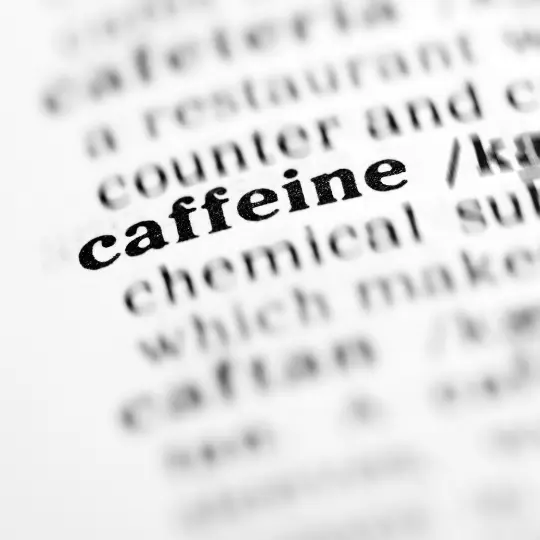Turkish coffee is traditionally strong, black, and sweet. That’s what makes it so different from regular coffee. But is it really that different from regular coffee? If so, then what are the major differences? And more importantly, is the caffeine content too high? Keep reading to find out.
Does Turkish Coffee Have High Caffeine Content?
If we consider its composition, Turkish coffee does have higher caffeine content. For instance, 1 fl oz. of Turkish coffee contains around 25mg of caffeine. significantly higher than regular coffee. To put that into perspective, it’s what you would expect from a cup of the strongest black coffee!

Similarly, the typical serving of Turkish coffee is around 2.5 ounces. That makes it 50mg of caffeine per serving. If you have multiple servings a day, your daily caffeine consumption only gets higher. Suffice it to say, a cup of Turkish coffee can really wake you up in the morning!
Another salient feature of Turkish coffee is that it’s unfiltered.
Usually, it’s prepared with 12 parts cold water and 1 part finely ground coffee. All of this is brewed in a brass or copper Turkish pot with granulated sugar.
The thing to note is that when brewed, EVERYTHING from the Turkish pot is poured into the Mirra (Turkish-style cup). This includes the grounds, which contribute to the higher caffeine content.
How much caffeine is there in one cup of Turkish coffee?
One study concludes that the average cup of Turkish coffee has around half the amount of caffeine that is considered extremely high for daily consumption, i.e. 300mg.

So, while you shouldn’t be worried about one cup of Turkish coffee a day, I would advise you to keep it to one per day; any more, and your daily caffeine intake goes up to abnormal levels.
However, all of this also depends on what brand of Turkish coffee you are using. For instance, some brands also offer low caffeine content coffee beans, allowing you to get your daily fix without worrying about a caffeine overdose!
Turkish Coffee Caffeine Content Comparison
Ok. So Turkish coffee has high caffeine content. But how does it stack up against other popular types of coffee?Let’s have a look.
Turkish vs. Espresso
Espresso is one of the most common types of coffee consumed worldwide. It’s the driving force for millions around the globe. But why is espresso so popular? After all, it is a highly concentrated shot of coffee that can give you the jitters.
The same is true for Turkish coffee. But how do the two differ in terms of caffeine content?

An average shot of espresso contains about 100 mg of caffeine. That translates to more than 50 mg of caffeine in your typical Turkish coffee serving.
Still if you’re going for the average 40 ml Turkish coffee up, it will have even more, around 165 mg. The only way to counter this with an espresso shot is to go for a double shot, discussed later, making it 200mg caffeine.
If you’d like to know more about the comparison between these two drinks, be sure to check out our article on Turkish Coffee vs Espresso
Turkish vs. Drip Coffee
Drip coffee is coffee that is prepared by pouring boiling water over finely ground coffee beans.
It is most commonly brewed at home with an automatic coffee pot. This is the kind of coffee you come across at places that serve a one-size-fits-all coffee, such as cafes that serve morning coffee.

Additionally, even though drip coffee uses espresso as its base, it also has other contents that reduce the caffeine. .
Moreover, it is less concentrated and takes longer to prepare. As a result, drip coffee lags behind in caffeine content compared to a typical 40 ml Turkish coffee cup.
Turkish vs. Doppio
If you have a thing for espresso shots, you will enjoy doppio even more. This is because doppio means ‘double’ in Italian i.e. a double espresso shot. Double the shot, double the caffeine.

If we compare this to a typical Turkish coffee serving, the doppio wins. Thus, if you want the extra jitters or have a high caffeine tolerance, go for a doppio.
Turkish vs. Cappuccino
Cappuccino is another extremely popular coffee beverage. In fact, anyone who has ever had coffee must have ordered a cappuccino at least once in their lifetime. Sadly, not everyone knows what it is and the amount of caffeine it offers.
So, to break it down, cappuccino uses espresso as its base. However, it is made creamy by adding foamed milk. This is one of the reasons why cappuccino is often mistaken for a latte. However, cappuccino is generally super foamy throughout and also offers a foamy layer at the top.

Moreover, cappuccino has less concentrated caffeine and is often taken as a light drink. People usually prefer it with breakfast or lunch for a quick boost. As a result, caffeine levels in cappuccino come nowhere near those in Turkish coffee.
Turkish vs. Americano
Americano coffee also uses espresso as its base.
Despite popular belief, Americano is not any coffee brewed in the US. However, there is an interesting story about how this type of coffee came to be.
During World War Two, American soldiers fighting in Italy found a regular espresso shot to be too strong. To dilute the taste, they started adding hot water to the espresso shot. And so, Americano coffee was born.

As for caffeine content, Americano is commonly 1 part espresso and 2 parts hot water. Sometimes it is even half and half. However, it is light and less intense compared to Turkish coffee.
Is Turkish Coffee Good for Health?
Turkish coffee has been found to help keep skin healthier.
There is also evidence to suggest that regular consumption has certain anticarcinogenic properties i.e. properties that help prevent cancer.
It is also known to boost mood and alertness to get you through long hours at work. But let’s have a look at some individual benefits of Turkish coffee.
Aids Digestion
The people of Turkey and Greece famously consume their coffee right after breakfast. Why? Well, Turkish coffee has proven health benefits as it boosts metabolism.
It contains both caffeine and proteins, which keep the digestive system active. As a result, intestinal muscle contractions see a significant improvement.
Healthy Gut
Caffeine, in general, is beneficial for the human gut.
It has many anti-inflammatory and anti-bacterial properties. These allow the gut to stay healthy by maintaining the perfect balance between beneficial and non-beneficial bacteria.
The high caffeine content of Turkish coffee makes it even more effective at these.
Improved Liver Function
Coffee consumption can minimize chances of developing liver conditions such as fibrosis and other liver diseases. This is also true for liver cancer.
This is supported by a study conducted by WHO (World Health Organization).
Protection Against Diabetes
A 2014 study and another one in 2017 concluded that increased daily coffee consumption protects against type 2 diabetes. However, you can only enjoy this benefit if you consume more coffee over the long run.
One of the studies concluded that you need to do this for at least four years. On the other hand, the 2017 study concluded that consuming at least 4 cups daily decreases metabolic syndrome risk.
Wrap Up
Turkish coffee is popular around the world because of the unique way in which it is brewed and the way it tastes.
It has a lot to offer, from high caffeine content to the authentic flavors. Many people think it is a good change from regular coffee, even for a short while.
On top of that, the coffee offers a stronger dose of caffeine, which many people prefer. As a result, it’s a win-win situation for anyone switching to Turkish coffee from regular coffee.
FAQs
Is Turkish coffee more caffeinated?
Yes, and no. When it comes to caffeine content, it all comes down to what you are comparing and the amount of coffee.
However, the same amount of Turkish coffee will generally have higher caffeine content than coffee prepared from regular beans.
How much caffeine is in a Turkish cup of coffee?
A typical 40 ml serving has 165 mg of caffeine content. You can also look at it in terms of per Oz, in which case it has 25mg/oz caffeine content.
Moreover, you also have to consider what brand of Turkish coffee you are using and how you brew the beans.
Does Turkish coffee have more caffeine than espresso?
A typical espresso shot has 50 mg of caffeine. However, strong espresso shots can also go as high as 100 mg. Similarly, Turkish coffee starts from around 65 mg and can go as high as 165 mg.
As a result, we can’t say which is stronger for sure, but they both offer a good caffeine boost for people who love the jitters.







